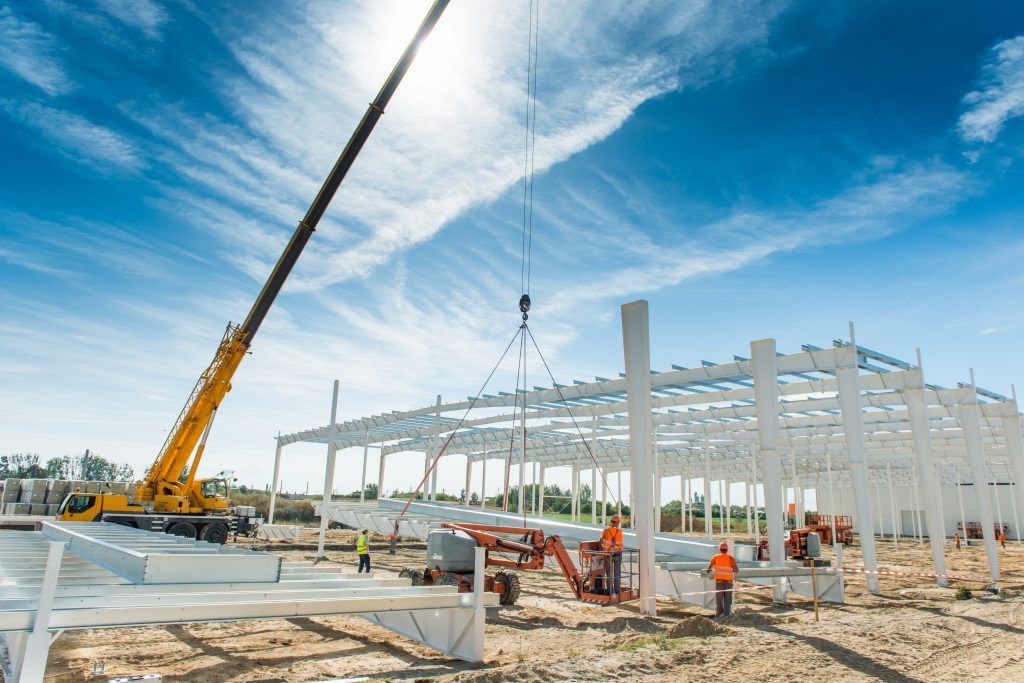PPVS Complete Facilities Management

How Facilities Management Enhances Logistics Operations
The UK logistics sector is under growing pressure to deliver speed, accuracy, and resilience in an increasingly complex supply chain environment. Distribution centres, warehouses, and logistics hubs operate around the clock, handling massive volumes of goods with minimal margin for error. With rising expectations, tight delivery windows, and the continuous flow of vehicles, people, and stock, the infrastructure that supports these operations must be maintained to the highest standards.
Facilities Management (FM) is essential to ensuring this critical infrastructure remains operational, safe, and efficient. Whether it’s overseeing loading bay maintenance, managing compliance inspections, or coordinating energy use across vast sites, FM works behind the scenes to keep the supply chain moving. In this guide, we explore how specialist facilities management supports logistics operations, identifying the unique demands of the sector and how expert FM solutions meet them.
How Facilities Management Supports the Retail Sector Contents
- Key Facilities Management Priorities in Logistics
- Maintaining Continuous Operations in Warehousing
- Ensuring Safety and Compliance Across Facilities
- Challenges with Conventional Facilities Management in Logistics
- How Advanced Facilities Management Solutions Meet Logistics Demands
- Facilities Management Keeps the Logistics Sector Moving
Maintaining Continuous Operations in Warehousing
In logistics, uptime is everything. Even short periods of disruption can cause ripple effects throughout the supply chain, delaying deliveries, breaching contracts, and damaging customer trust. That’s why FM services must be planned with precision to support, rather than interrupt, the flow of goods.
Scheduled Maintenance That Minimises Disruption
Facilities teams work closely with operations managers to plan servicing and repairs during low-traffic periods – often overnight, during early shifts, or split across weekends. Whether the task is servicing loading docks, replacing light fittings in high bay aisles, or carrying out fire system checks, the work must be seamless and non-disruptive.
To support this, FM providers adopt phasing strategies, plan works zone by zone, and utilise temporary equipment (such as mobile lighting or temporary barriers) to keep sites functional during upgrades or inspections.
Managing Access and Space Constraints
Logistics centres are busy, high-density environments. FM teams must plan works in such a way that avoids blocking transport lanes, obstructing stock movement, or creating hazards. In shared warehouses or third-party logistics environments, access control and coordination with other users is essential to ensure safe, efficient execution of facilities tasks.
Supporting Automated and Semi-Automated Systems
With automation increasingly common in logistics hubs, FM responsibilities now include maintaining and coordinating with these systems. Teams must work in conjunction with IT and engineering teams to ensure compatibility, plan downtime windows, and rapidly respond to faults that could impact productivity.
Ensuring Safety and Compliance Across Facilities
Regulatory compliance and safety are foundational to facilities management in logistics. Sites must meet high standards across fire safety, accessibility, environmental performance, and equipment use – all while managing risk in complex, ever-changing environments.
Fire Safety and Emergency Systems
Large-scale storage facilities are particularly vulnerable to fire hazards due to the combination of flammable packaging materials, electrical systems, and machinery. FM teams must ensure that detection and suppression systems (such as sprinklers, alarms, and extinguishers) are tested, documented, and maintained. Evacuation procedures must also be clearly marked, regularly reviewed, and accessible to all personnel and contractors.
Equipment Inspections and Certification
Facilities teams are responsible for ensuring equipment complies with the Lifting Operations and Lifting Equipment Regulations (LOLER), Provision and Use of Work Equipment Regulations (PUWER), and relevant BS standards. This includes managing testing schedules, maintaining documentation, and coordinating repairs or replacements where needed.
Environmental and Temperature Controls
Many logistics centres handle sensitive goods – from food products to pharmaceuticals – which require controlled temperatures and air quality. FM providers must manage HVAC systems, refrigeration units, and environmental monitoring to ensure conditions stay within strict tolerances, especially in bonded warehouses or regulated storage areas.

Challenges with Conventional Facilities Management in Logistics
Traditional FM models often fall short in logistics environments due to their rigidity, lack of operational awareness, and assumption of downtime. Many generic FM contracts are built around static site requirements, fixed schedules, and uniform working hours – none of which reflect the reality of a modern distribution centre.
Logistics operations are fluid, complex, and highly variable. Site layouts differ widely, with some facilities housing automated fulfilment zones, while others rely on human pick-and-pack operations. Vehicle movements, third-party providers, and seasonal surges all add layers of complexity. Without FM teams that understand these nuances, service levels may fall behind, compliance risks may increase, and facilities may struggle to adapt to change.

How Advanced Facilities Management Solutions Meet Logistics Demands
Modern logistics demands agile, integrated, and highly responsive FM. Specialist providers, like our team at PPVS, offer a tailored approach that understands the pressures of the logistics sector and delivers services that protect performance, people, and profitability.
Rapid Response and Predictive Maintenance
FM providers equipped with mobile response units, digital reporting tools, and real-time monitoring systems can identify and resolve faults before they affect operations. Predictive maintenance – using sensors and data analytics – allows teams to anticipate failures in critical assets like conveyor belts, dock doors, or chillers and schedule repairs proactively.
Integrated Security and Access Control
Logistics hubs often deal with high-value goods and sensitive shipments. FM teams work alongside security departments to ensure CCTV systems, perimeter fences, access gates, and badge systems are operational and effective. Integration with building management systems enables real-time monitoring and alerts to prevent theft or unauthorised access.
Energy Efficiency and Environmental Management
FM contributes directly to sustainability goals by managing lighting upgrades, solar installations, and energy audits. Logistics facilities are high consumers of power – especially those with climate-controlled zones or 24/7 operations. By optimising building systems and monitoring consumption, FM can significantly reduce energy waste and carbon output.
Coordinating Across Multiple Stakeholders and Teams
Logistics FM is a collaborative effort. Site managers, operations leaders, H&S officers, contractors, and third-party logistics partners must all work in sync. Facilities managers act as the central coordination point, ensuring that works are planned, risks are mitigated, and information flows between all parties.
Effective communication is key. Daily briefings, shared work schedules, digital dashboards, and audit trails ensure that everyone is aligned, tasks are completed safely, and no detail is missed. This joined-up approach reduces the chance of conflict between operational needs and facilities tasks.
Contingency Planning for Critical Parts and Equipment
In logistics, unplanned downtime can grind operations to a halt. That’s why specialist FM includes robust contingency planning across equipment, personnel, and processes.
- Stocked Spare Parts: FM providers often maintain on-site or near-site inventories of common parts – such as dock leveller components, emergency lighting, and HVAC filters – to avoid delays caused by sourcing.
- Backup Equipment: In mission-critical operations, facilities teams may deploy mobile generators, lighting rigs, or temporary access systems to maintain operations during outages or equipment failure.
- Vendor Relationships: Established relationships with suppliers and subcontractors mean that FM providers can escalate issues and source replacements quickly – even during peak season or supply chain disruption.
- Permit and Access Planning: FM teams pre-empt access or permit issues by securing approvals early, maintaining contact with local authorities or site landlords, and building schedules to handle delays or refusals.
Facilities Management Keeps the Logistics Sector Moving
In a sector defined by speed, precision, and operational complexity, facilities management is not a support function – it’s a critical enabler. From safety compliance and energy management to reactive maintenance and long-term infrastructure resilience, FM providers keep the physical environment aligned with logistics objectives.
By choosing an FM partner with deep sector knowledge, logistics businesses can reduce risk, improve uptime, and support their long-term strategic goals. If you’re looking for a facilities management provider that understands the specific demands of logistics and warehousing, our team at PPVS can help. Get in touch to find out how we can support your operations.


Get in touch to see how we can help with your Facilities Management.
For general enquiries please fill out the form and our team will be back in touch. Or give us a call or email using the details below.





